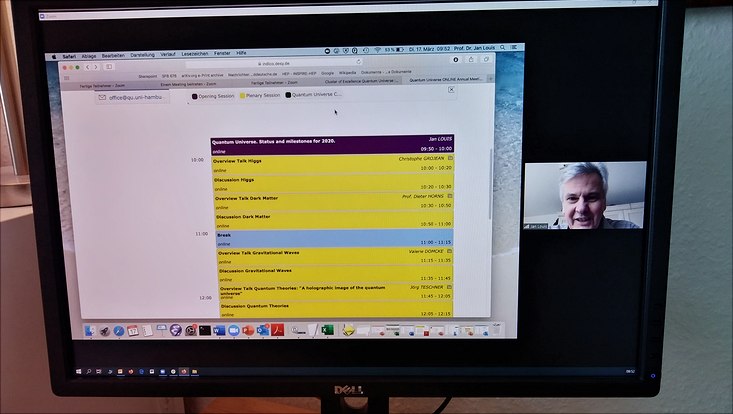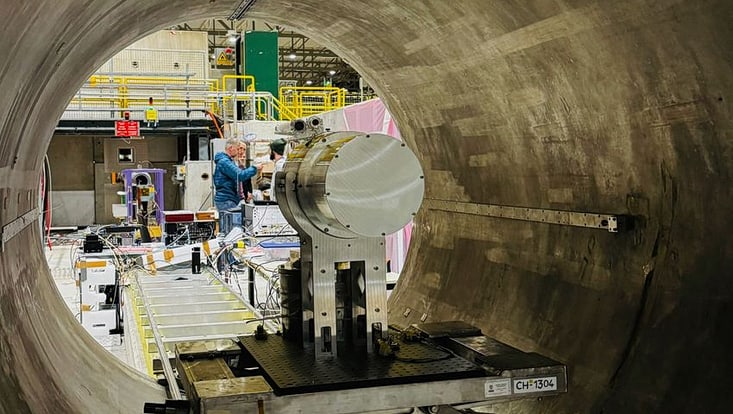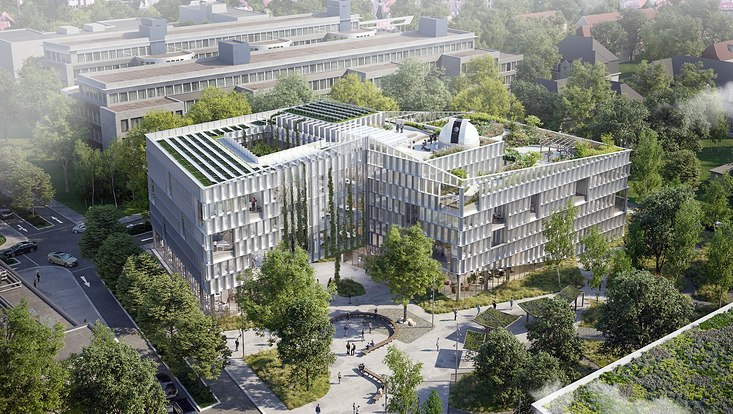First annual meeting at the Cluster of Excellence Quantum Universe
31. März 2020

Foto: UHH/Walter
From 16 to 18 March 2020, the scientists of Quantum Universe exchanged ideas at the first annual meeting of the Cluster of Excellence. Due to the corona crisis, the annual meeting took place online. In addition to lectures from the four research areas Higgs Physics, Dark Matter, Gravitational Waves and Quantum Theories, there were also contributions from the cross-disciplinary platforms of Quantum Universe. The climate mission statement of the Cluster of Excellence was also presented during the annual meeting.
Spokesperson Prof. Dr. Jan Louis (II. Institute for Theoretical Physics) drew a positive conclusion at the end of the first annual meeting at the Cluster of Excellence Quantum Universe. During the previous two and a half days, almost one hundred scientists from the cluster had taken part in the online annual meeting. Due to the corona crisis, the program of the meeting was adapted to the new conditions at short notice. Interactive formats had to be postponed to project days later in the year. Researchers from the four research areas of the cluster, Higgs Physics, Dark Matter, Gravitational Waves and Quantum Theories, provided insights into the current status of their projects. Slightly more than half of the planned positions for early career researchers in the cluster have already been filled, so that many research projects reported initial successes. Primarily young scientists and PhD students presented current developments from the four cross-disciplinary platforms of Quantum Universe on Innovation in Detector Science, Theoretical and Mathematical Physics, Future Facilities and Challenges in Data Science.
Prof. Dr. Johannes Haller (Institute of Experimental Physics) presented the climate mission statement of Quantum Universe to the scientists. In view of the immense impact of greenhouse gases, it was essential that a Cluster of Excellence like Quantum Universe also implemented measures to reduce its own emissions, Prof. Haller stated. He invited all researchers of the cluster to contribute with their ideas to the further development of the climate mission statement. Prof. Haller pointed out that the successful online annual meeting was a good test for offering lectures by international guest speakers as online formats in the future to avoid long journeys and thus contribute to climate protection.


